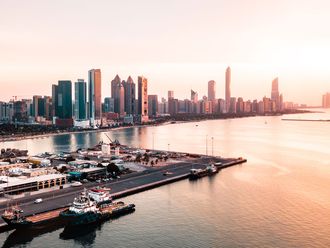Launching his presidential election campaign, Morgan Tsvangirai invoked the highest authority to support his promise that this week’s poll will bring an end to Robert Mugabe’s 33-year-long rule in Zimbabwe. It was God’s wish that his opposition Movement for Democratic Change win, he declared, to a rally of supporters gathered in the eastern city of Marondera.
It will take more than faith, prayers and enthusiasm to unseat Mugabe, though. The 89-year-old President of Zimbabwe — one of the veteran “Big Men” of African politics — has for years outfoxed his opponents at home and abroad and survived more than a decade of sanctions.
On paper, there are three possible outcomes. Tsvangirai’s party may defy all expert predictions and pull off a stunning victory on its own, and one, crucially, that Zanu-PF will accept. There may be a run-off if both Mugabe and Tsvangirai do not get the majority needed for an outright win, in which case an uneasy coalition looms.
But, in truth, the indications are that Mugabe’s Zanu-PF party will yet again walk away with an election, whose legitimacy is already open to question. The conditions for a fair contest do not exist. The state media backs the president; the redrawing of constituency boundaries to reflect the latest census numbers has not happened, leaving a bias towards Zanu-PF. The electoral roll is in a shambles. The number of registered votes in some age groups far exceeds the number of people counted in the 2012 census. There are, for instance, 116,195 people over the age of 100 on the roll — remarkable in a country with life expectancy of less than 40.
A Mugabe victory will underline the failure of western intervention and the impotence of regional efforts at pressing reform in a country whose economic potential has the power to transform southern Africa.
In the past five years, the unity government of Zanu-PF and MDC has managed to bring down hyperinflation to single-digits and replaced the worthless Zimbabwe dollar with a stable multicurrency system anchored on the US dollar. The result has been growing market and consumer confidence. These gains risk being reversed if Zanu-PF emerges outright victor. The president’s party is committed to inward-looking nationalist policies, most notably its “indigenisation” policies that require 51 per cent of local banks, mining companies and other crucial drivers of the economy to be owned locally. These policies will almost certainly scare investors, driving away capital and further isolating Zimbabwe.
An outright Zanu-PF win will also reverse the faltering progress towards democracy. Party officials have threatened to overturn a new rights-based constitution, backed by all parties and in a referendum.
Yet, the bitter truth for the opposition is that, should Mugabe be victorious this week, it is also to blame for allowing that to happen. The best option to prevent an outright Zanu-PF victory will have been for the four main opposition parties to come together and fight as a coalition spanning the regions.
Tsvangirai’s party enjoys wide support. While the three smaller parties may not have the numerical advantage that his MDC enjoys, they will deepen and strengthen any alliance. The key partner will be Welshman Ncube, a founder of the original MDC who now leads a smaller breakaway party — confusingly also called the MDC.
Reliable and generally accepted opinion poll data are hard to come by. Based on the results of its 2008 result, Ncube’s party is unlikely to win more than 10 per cent of the vote, but every one of those votes will be crucial. Past contests took place amid claims of rigging. Five years ago, Tsvangirai did beat Mugabe in the first-round vote, but withdrew from the second round after his supporters were subjected to a campaign of intimidation. A united opposition that took the bulk of the anti-Mugabe vote would make it all but impossible for Zanu-PF to win in a straight fight.
So what stands in the way of a grand coalition between the two MDCs? It is mainly the bad blood between the two leaders. Tsvangirai blames Ncube for the damaging split in 2005; Ncube argues that the split was the inevitable result of Tsvangirai’s failure to accept collective decisions. Rejecting what he termed “a coalition of convenience, a coalition of opportunists”, Ncube said last week that the “new dispensation” that his party wants is not “a dispensation to remove Mugabe, but a dispensation to build a new Zimbabwe” on the basis of democratic values that he believes the larger MDC does not share.
At the Marondera rally, the crowd chanted the slogan: “A new beginning, a new Zimbabwe.” That may still be possible, but given that the opposition leaders appear to have allowed personal vanity and their egos to get ahead of the hard work of unseating Mugabe, it seems more likely that any new beginning promised in Marondera will be nothing more than the continuation of the old, and cold, reality.
— Financial Times
Petina Gappah, a Harare-based lawyer and author, is a fellow of the Open Society Foundations.











